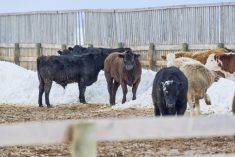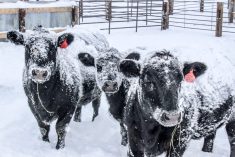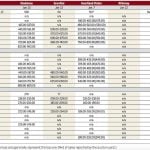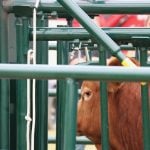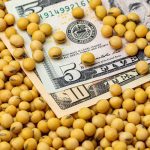It appears finishing feedlots and cattle buyers are coming to terms with the fact that the COVID-19 pandemic may last longer than earlier anticipated. The “hope” factor that this environment will be short-lived has evaporated.
Compared to last week, western Canadian feeder cattle markets traded $3 to as much as $10 lower, with yearlings absorbing the brunt of the weakness. Calves under 650 lbs. experienced limited slippage trading $3-$5 below week-ago levels. The market was hard to define. Prices were lower at auction barns that had smaller volumes. The price structure depended on the crowd, as order buyers had a deck of cards with a wide range of prices for similar weight cattle.
Read Also
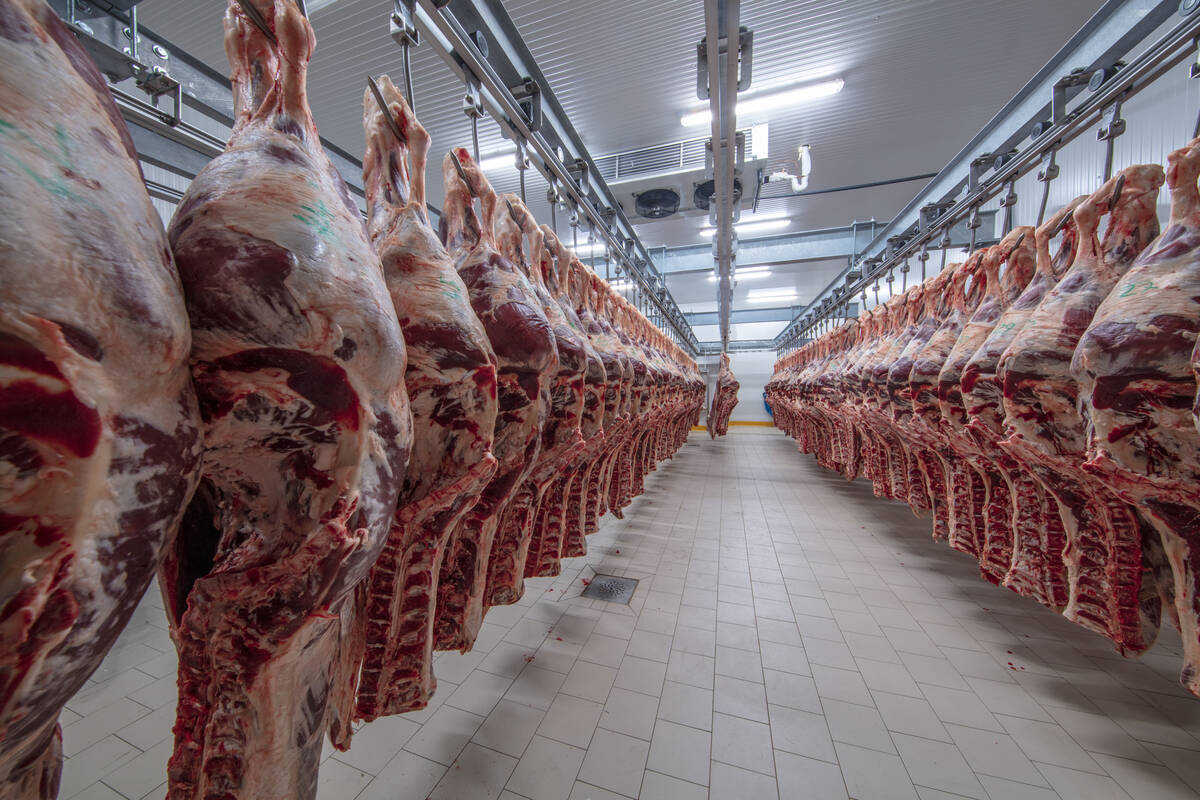
U.S. livestock: Feeder contracts surge, hogs rise
Chicago feeder cattle contracts surged on Thursday. Live cattle and lean hogs also made healthy gains. Most-active April live cattle…
In central Alberta, mixed steers weighing 925 lbs. sold for $150 while tan heifers weighing just over 950 lbs. were valued at $143. In southern Alberta, mixed steers averaging 820 lbs. were quoted at $166 while tan heifers weighing 870 lbs. were reported at $149. In Manitoba and Saskatchewan, heavier yearlings over 850 lbs. traded $3-$5 below Alberta values. We’re seeing backgrounded cattle surface that should have come on the market 30-45 days earlier in some cases.
The mid-weight categories were quite variable. Buyers shopping for 750-lb. grassers were more aggressive but the finishing feedlots price these feeders in line with the December live cattle futures. In central Alberta, red mixed steers weighing 730 lbs. were quoted at $181 while in central Saskatchewan, Charolais-blended steers averaging 725 lbs. were quoted at $170.
Black steers weighing just over 500 lbs. were quoted at $235 in southern Manitoba while their sisters weighing 525 lbs. were valued at $192. In central Alberta, mixed steers averaging 660 lbs. were reported at $175 and red mixed heifers weighing 680 lbs. were reported at $160. There appears to be stronger demand for calves and grassers in the eastern Prairie regions.
Alberta packers were buying fed cattle at an average price of $144 f.o.b. the feedlot last week, about $15 below break-even pen closeout values. Larger operations have a fair amount of cattle to move over the next couple of months; therefore, buyers are not anxious to step forward until the live cattle futures stabilize. Southern Alberta received another round of winter late in the week, while below-normal temperatures plagued most of Saskatchewan. Adverse weather also contributed to the softer tone.
— Jerry Klassen manages the Canadian office of Swiss-based grain trader GAP SA Grains and Produits Ltd. and is president and founder of Resilient Capital, specializing in proprietary commodity futures trading and market analysis. Jerry consults with feedlots on risk management and writes a weekly cattle market commentary. He can be reached at 204-504-8339 or via his website at ResilCapital.com.




